Search Images
Browse Content (p. 790)
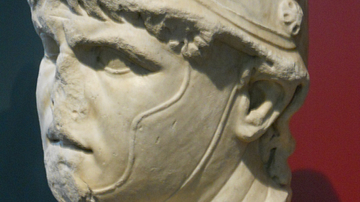
Image
Roman Bust Attributed to Philip V of Macedon
A bust of a warrior, sometimes identified as Philip V of Macedon (238–179 BCE). Roman copy made c. 220 - 179 BCE, after a Pergamene original made c. 200 BCE. Found near the River Tiber, Rome. From the National Roman Museum -Palazzo Massimo...
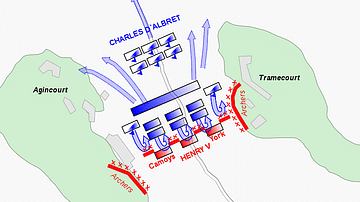
Image
Agincourt Battle Lines
An illustration showing the approximate troop formations at the Battle of Agincourt in October 1415 CE during the Hundred Years' War (1337-1453 CE). The blue indicates French and the red the English forces. The much smaller English army...
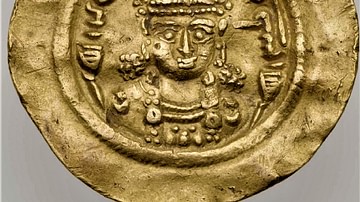
Image
Boran
Gold coin of Purandokht/Boran (r. 629-631 CE).Museum of Fine Arts, Boston.

Image
Yazdegerd III
Coin of Yazdegerd III (r. 632-651 CE).
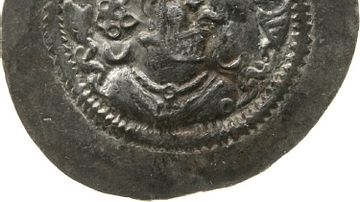
Image
Kavad I
Silver coin of Kavad I (r. 488-496, 498-531 CE), minted in 499 CE.
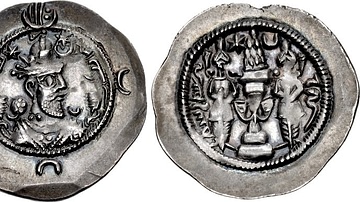
Image
Kosrau I
Coin of the Sassanian king Kosrau I Anushirvan (r. 531-579 CE), Gundeshapur mint.
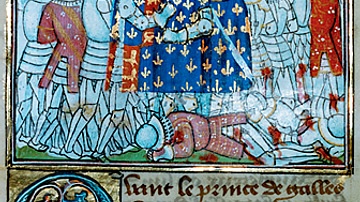
Image
Capture of John II of France, Poitiers
A 15th century CE manuscript illustration showing the capture of John II of France (r. 1350-1364 CE) at the Battle of Poitiers in September 1356 CE. The battle was the second major victory for the English in the Hundred Years' War (1337-1453...
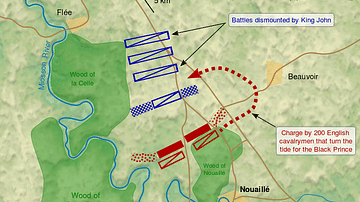
Image
Battle of Poitiers Map
A map showing the initial battle lines at the Battle of Poitiers in France on 19 September 1356 CE between England and France. The English, led by Edward the Black Prince (1330-1376 CE), were victorious in the second major battle of the Hundred...
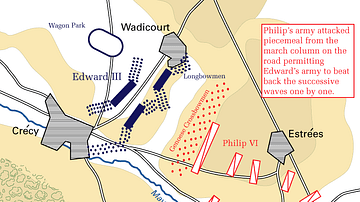
Image
Battle of Crécy Map
A map indicating the battle lines at the Battle of Crécy in northern France on 26 August 1346 CE between England and France. The English, led by Edward III of England (r. 1327-1377 CE), were victorious in the first major battle of the Hundred...
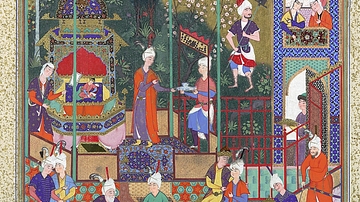
Image
The Coronation of the Infant Shapur II
"The Coronation of the Infant Shapur II", Folio 538r from the Shahnameh (Book of Kings) of Shah Tahmasp.Painting attributed to Muzaffar 'Ali (active late 1520s–70s CE; d. c. 1576 CE)